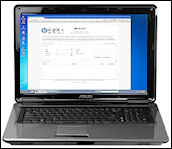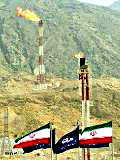
ABOVE: Nalinee Taveesin
Any U.S. companies doing business with the Thai government are going to have to exercise some additional caution after Thailand’s Prime Minister Yingluck Shinawatra appointed Nalinee Taveesin as PM’s Office Minister. Ms. Taveesin is on the SDN List maintained by the U.S. Department of Treasury’s Office of Foreign Assets Control (“OFAC”). U.S. persons are forbidden by law to engage in any transactions with individuals on the SDN List.
Ms. Taveesin was placed on the list because of her alleged involvement in various transactions with Grace Mugabe, the wife of Zimbabwe’s President Robert Mugabe. Taveesin claims it’s all a huge misunderstanding, that she never was involved in any business deals with Grace Mugabe, and that she merely had become friends with Grace Mugabe when she came to Thailand for a New Year’s holiday vacation.
The issue now is whether Ms. Taveesin’s presence on the SDN list has any impact on business deals with the Thai government in which she may be involved. The SDN list would seemingly bar transactions with her both in her private and in her official capacity. OFAC has, at least in the case of the Palestinian Authority, held that the presence of sanctioned individuals in a government agency or body could prevent transactions with the government agency itself, effectively eliminating any notion that someone can be sanctioned vis-Ã -vis their private activities but not their official governmental activities.
I’ll have to be honest and say that I have no idea what the PM’s Office Minister in Thailand does, but U.S. businesses doing business with the government of Thailand should be wary and make sure that Ms. Taveesin has no connection with, or involvement in, the transaction.

 Posted by
Posted by  Category:
Category: 


 The Office of Foreign Assets Control (“OFAC”) has just debuted a new web page which features a facility allowing users to search OFAC’s Specially Designated Nationals and Blocked Persons list. Go to that new page by clicking
The Office of Foreign Assets Control (“OFAC”) has just debuted a new web page which features a facility allowing users to search OFAC’s Specially Designated Nationals and Blocked Persons list. Go to that new page by clicking  The White House signed, on November 19, Executive Order 13590, which increased the sanctions on foreign firms doing business in Iran. An official copy of the executive order has not been released but it is described in this “
The White House signed, on November 19, Executive Order 13590, which increased the sanctions on foreign firms doing business in Iran. An official copy of the executive order has not been released but it is described in this “ I’m not quite sure what to make of
I’m not quite sure what to make of 

